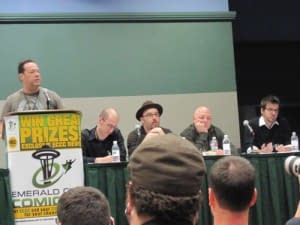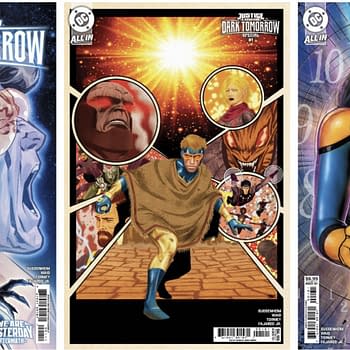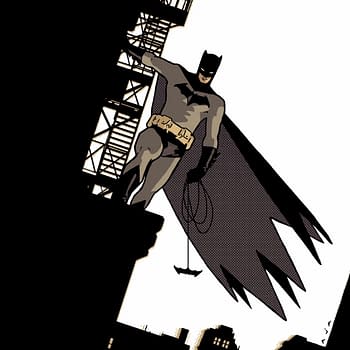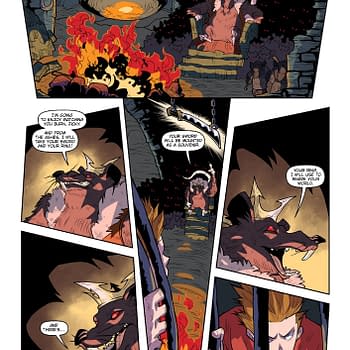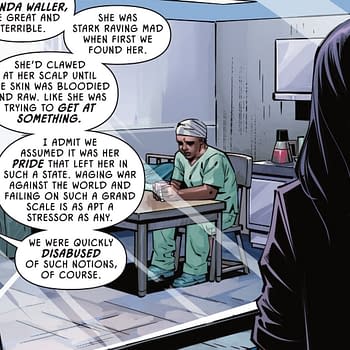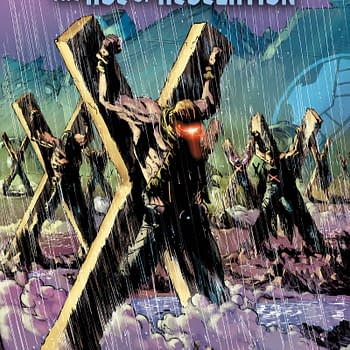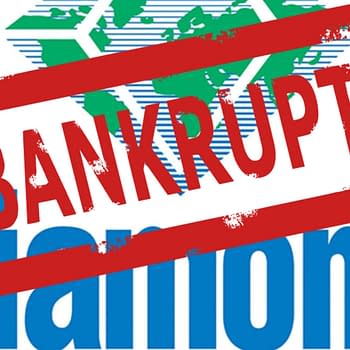Posted in: Comics, Recent Updates | Tagged: andrew wheeler, no more mutants
No More Mutants by Andrew Wheeler #1, Won't You Take Me To Mutant Town
The mutants are coming back to Marvel.
Recent events in the X-Men comics have tugged at the edges of one of the company's stranger editorial edicts of the past ten years – the decision to wipe out almost an entire minority because… there were too many of them.
It sounds a little sinister. Faced with a problem minority, Marvel's response was a fictional genocide. In the story House of M it was presented as the Scarlet Witch's way to undo the miseries of her life, which included a failed marriage, a monstrous father, two dead children, a nervous breakdown and a spiral into villainy. Faced with those problems, wiping out an entire race seems like a baffling and inelegant solution. Seen as a solution to editorial concerns that mutants were overrunning the Marvel universe, it makes a lot more sense. (It certainly wouldn't be the first or last time that a character behaved strangely in order to serve an editorial agenda.)
At the time of the House of M story, editor-in-chief Joe Quesada said, "Part of what is inherently important about the metaphor of the X-Men is that they are a minority. … [T]here aren't supposed to be a lot of these guys … they never really should've been in the forefront. That kind of message got lost over the years, to the point where we ended up with a mutant island where there were over six million of them, and every time you'd turn a page, you'd see a mutant on every corner. We eve had 'Mutant Town'. So, one of the things that we wanted to do was put the genie back in the bottle."
Such rhetoric suggests a misunderstanding of the challenges faced by real minorities. The invention of a mutant nation and a mutant neighbourhood really enhanced the metaphor, rather than undermined it. After all, the existence of almost four billion Asians in the world doesn't make life easier for one Asian kid in a town in rural America. The existence of gay neighbourhoods in almost every major city in the Western world has not made coming out to one's parents any easier. More than half the world is female, but women still don't have full equality in the first world, let alone in the developing world. The claim that "there aren't supposed to be a lot of these guys" is not likely to be well received by anyone who has ever been a victim of prejudice.
The better solution to Quesada's perceived problem might have been to simply stop telling so many stories about mutants. Writers won't write those stories if editors tell them not to. Instead, Quesada reduced the mutant population to less than 200 people, which is not a minority at all, but a sprawling family.
I don't think Quesada was being malicious when he decided to purge the mutants; I just don't think he thought it through. The changed status quo provided some fertile ground for stories, but it took a while before anyone tried to plant anything there, and the major arc to come out of it was the story that brought the mutants back. Now that new mutants are appearing in the Marvel universe again, Marvel actually can tell stories about mutants as a minority again, rather than as an 'endangered species'.
Minorities in general do not have the best time of things in comics' superhero mainstream. The superhero genre is dominated by the straight, white, male majority, and so is the creative community. Convention has it that this is true of the audience is as well, but there are plenty of readers who don't fit that model, and these readers are used to the idea that they won't see themselves reflected in the media they consume. That's not something that we should be complacent about, in comics or in any other medium.
In this column, I plan to examine how minorities have been represented and treated in the superhero genre. This is not about assigning quotas, or imposing a sense of obligation on creators, and I'm certainly not going to suggest that minority characters can never be villains or victims. Rather, I want to challenge the complacency of an industry that always defaults to the majority.
This complacency is present in a lot of the media we consume, but in comics it's exaggerated by the facts of the medium's history. Superhero comics are still telling stories that began fifty, sixty, or seventy years ago, and this has created a built-in bias towards conventions from more than half a century ago. White. Male. Straight. The minority characters that we do see often reflect prejudices and stereotypes of the past; women are passive hangers-on; black people are ghetto street-toughs; Asians are mysterious martial artists; and gays don't exist at all.
Marvel's mutants have served as a metaphor for just about every minority, and in some cases those minorities remain better represented in metaphor than in fact. Comics' default position on diversity seems to be one of avoidance – a position that's perfectly summed up by the Scarlet Witch's memorable phrase, 'No more mutants'. Those three words might also suggest the best way forward; let's stop talking in metaphors and put the actual minorities in comics, to tell their own stories.
It will take a conscious effort to correct comics' institutional bias. It will take deliberate action to resist the reflex to only tell stories about straight, white men. No more mutants. Let's let the whole audience in to the story.
Andrew Wheeler writes about food and comics. Sometimes simultaneously. He is the author of Eat Britain!






